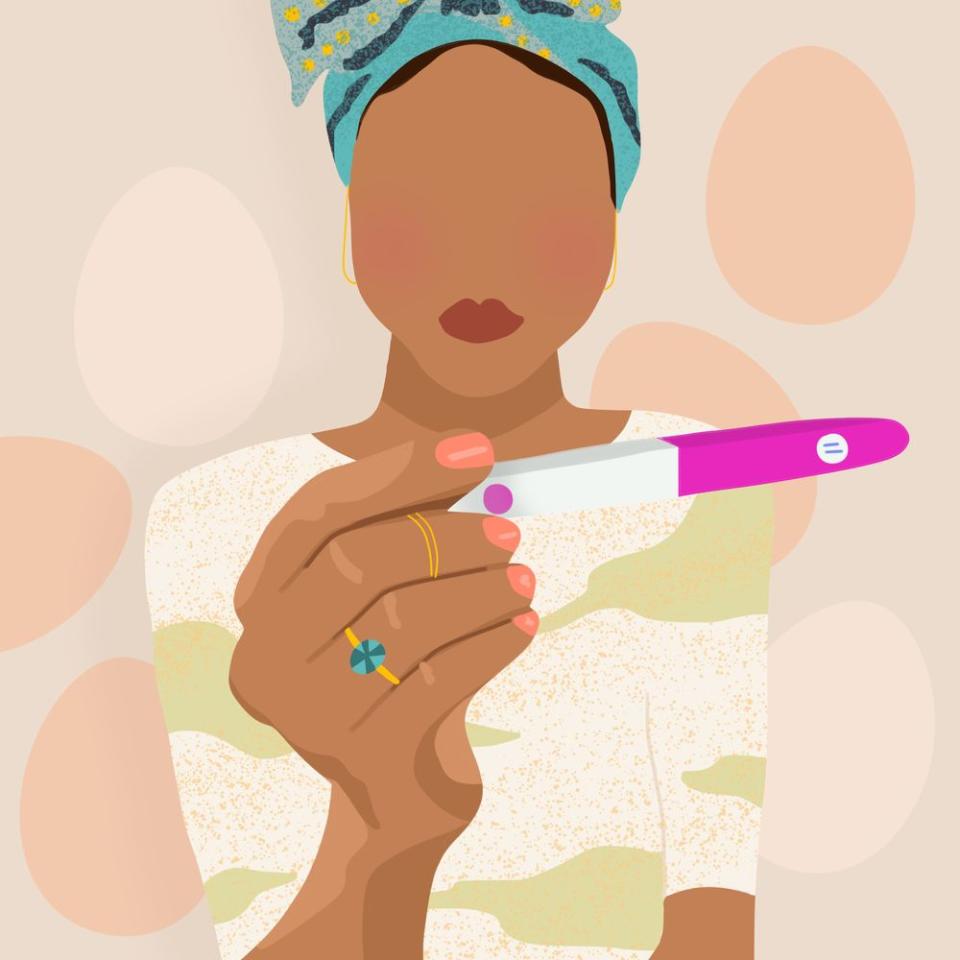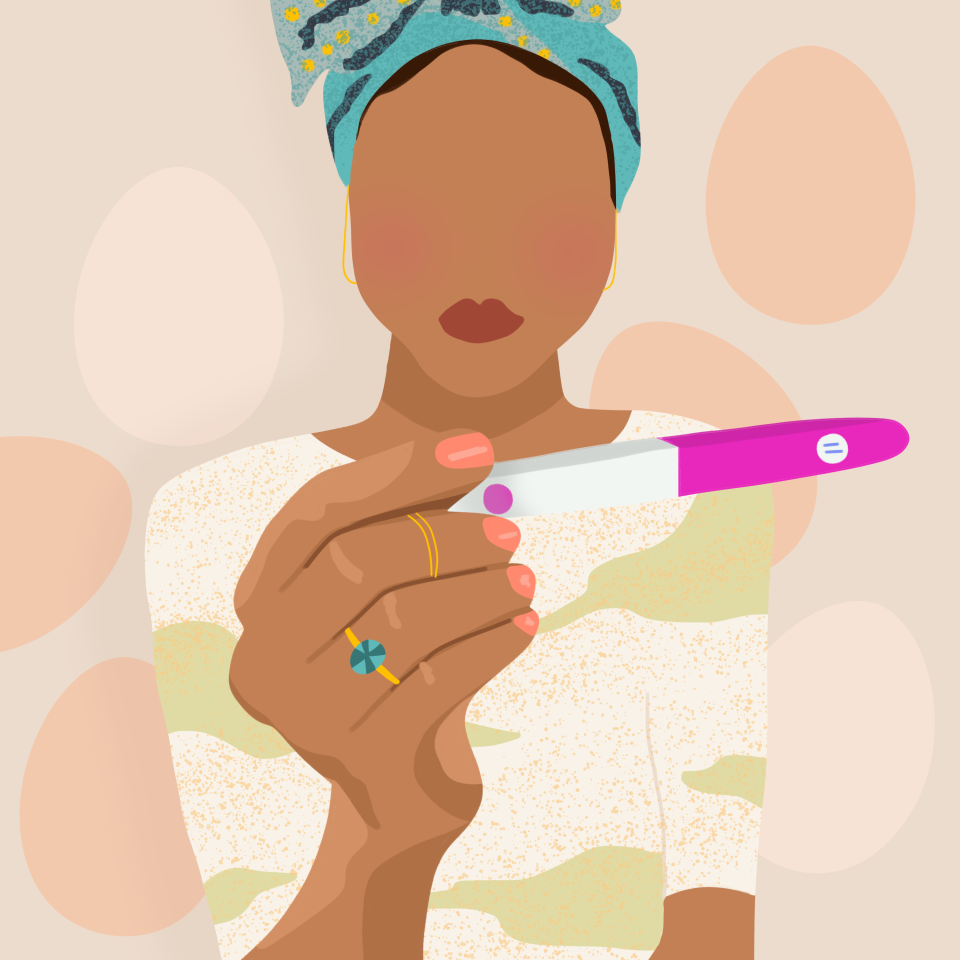Why Is Infertility Still Taboo in the Black Community?

In the last decade, it's been common to hear stories of female celebrities facing reproductive challenges or preparing for a future in which they cannot conceive naturally. Sarah Jessica Parker openly discussed using a surrogate to carry her twins. Olivia Munn told all her friends to freeze their eggs after doing so herself. Maria Menounos documented her IVF journey on social media.
However, few black women are as public about their own struggles with infertility. "They shied away from this topic," said one celebrity publicist who asked to not be named. Several of her black female clients have been rumored to have undergone fertility treatments, but she confirms that "it's very difficult to discuss."
Why do women in other cultures and communities feel comfortable speaking about their experience while black women do not? In part, this can be linked to treatment statistics: Only 8% of black women seek medical help to get pregnant compared to 15% of white women. But it can also be attributed to the historic belief that infertility doesn't exist within the back community. This idea has been so deeply rooted in the culture that moms and aunts don't talk to their daughters about fertility issues. Then when a woman does experience them, she feels too much guilt and shame to bring it up, even to a doctor.
"I think there is deep cultural undercurrent fueled by racism and false perception of what it means to be a black woman," explains Aja Graydon, one half of the R&B group Kindred the Family Soul, and a mother of six. "We have bought into ourselves as primarily breeders on some level. The black woman as forever fertile is a notion held over from slavery."
The reality: Non-Hispanic black women are nearly 2 times more likely to have infertility issues than either Hispanic or non-Hispanic white women.
Silence Around Infertility in the Black Community
Phylicia Fant explored these deep rooted notions and historical behaviors while executive producing the documentary 'Eggs Over Easy: Black Women & Fertility,' which sheds light on fibroids, polycystic ovary syndrome, endometriosis, and other issues that require reproductive assistance like IVF, IUI, and surrogacy within the black community.
"In reality, the actual act of having IVF and egg freezing isn't as 'taboo' as discussing it is," Fant says. "In the black community, we tend not to talk about fertility. Period. Since slavery, there's been an idea that black women are naturally fertile. There are 400-year-old stigmas attached to our fertility in the US but also in our community."
Andreka Peat, a licensed clinical psychologist in Atlanta, Georgia, agrees there are cultural components that make fertility treatments socially unacceptable in the black community, but she says they also stem from religious beliefs.
"There are beliefs about God and 'His perfect timing,'" explains Dr. Peat. "Beliefs within the black community related to what it means to be a 'virtuous' woman which means waiting on God for both a partner and for children. Beliefs related to 'If it was meant for me then God will allow it to happen.'"
Other women of color blame this silence around infertility to the ideal that women are expected to be strong—even strong enough to handle reproduction struggles without showing any vulnerability.
"The majority of the media rarely shows black women being vulnerable like they do with white women," says Kimrie Lewis, 37, a star of ABC's sitcom Single Parents. "The media, whether subconsciously or not, focuses on showing black women as strong. Well guess what? We are strong. But dammit, we struggle too!"
Lewis froze her eggs last year at the age of 36 because she wants to have options when she is ready to have children. "I'll admit, there was an initial sticker shock! But I needed to change the way I was looking at it—instead of looking at 'how much it would cost,' I saw those dollars as an investment in my future options. Why wouldn't I want to invest in myself?"
One of the few black female celebrities who contributed to the conversation, Gabrielle Union, said she has adenomyosis, a condition that causes the inner uterine lining to grow into the uterine wall and impacts her fertility. When she was finally diagnosed and chose IVF and a gestational surrogate to carry her baby, she admitted there was "so much shame and mystery and guilt that surrounds fertility issues."
Indeed, black women are expected to be strong enough to handle reproduction. Being a mother or the matriarch in the black community is a coveted role. We revere and look up to our mothers; a lot of us strive to become them. Many black women of childbearing age remember stories of our grandmothers and great-grandmothers having multiple children; it's no wonder we feel uncomfortable discussing our challenges or attempts to have just one baby.


